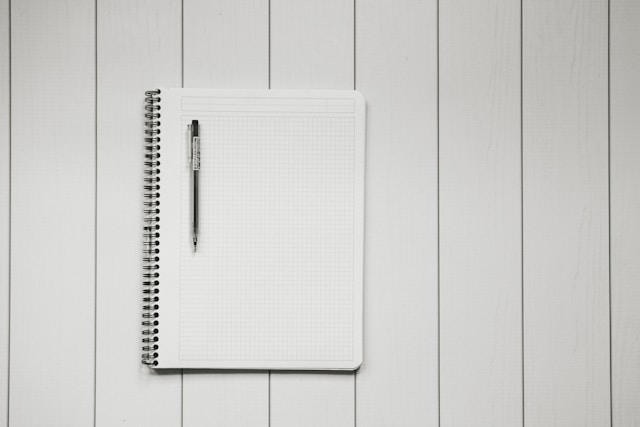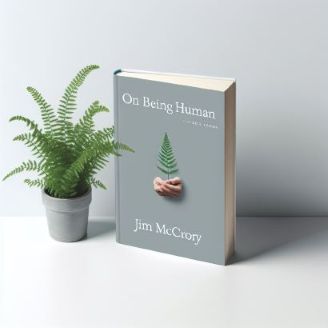"For me, the process of writing personal essays during my master’s
was not only an academic exercise
but a way of processing the world and my place in it
at a time when both seemed uncertain."

Image kindly provided by https://unsplash.com/@kellysikkema
Writing personal essays
as part of a Creative Writing degree is an experience that draws you into an
intimate relationship with your own life. For me, completing my master’s at the
end of the Covid pandemic, much of that journey involved writing personal
essays—reflecting on who I was in a time when the world itself was in a state
of deep reflection and isolation. The personal essay, by its very nature,
forces you to look inward, to craft narratives that not only feel true to
yourself but also engage with broader human experiences. But that is where the journey
begins.
On the one hand, writing
about personal experiences demands a kind of authenticity that doesn’t always
come naturally. It’s not simply about recounting a story or an event but
shaping that memory into something meaningful, something that resonates with others.
There’s this constant tension between telling the truth of your experience and
presenting it in a way that meets the demands of the genre—structure, voice,
literary techniques, all of which have to be woven into the emotional core of
your story. That can feel like a tightrope act. You’re trying to be honest, yet
you’re also crafting a piece of art, refining and manipulating your experiences
for the sake of the story. Sometimes, in the process, it’s easy to wonder
whether the pursuit of craft pulls you further away from your own truth.
The vulnerability of
writing personal essays was especially intense during my time in the master’s
program. The workshop setting adds another layer of emotional complexity.
Sharing something deeply personal in a group of peers, knowing it will be
picked apart for the sake of improvement, can feel deeply exposing. I often
found myself wondering how to separate my own feelings from the essay itself
when I received feedback. Was their critique of the narrative, or were they
indirectly critiquing the person I was revealing on the page? The boundary
between the self and the written self becomes blurred in that kind of
environment, and it takes time to develop the emotional fortitude to accept
feedback without internalizing it too deeply.
At the same time, I also
faced the pressure to perform, to produce essays that not only explored
meaningful experiences but did so in a way that impressed. There’s this
unspoken competition in academic writing programs where you’re aware of how
your work measures up against your peers. It’s tempting to dramatize your
experiences or choose topics that you think will hit harder in a workshop
setting, but that can sometimes lead to a kind of performative vulnerability,
where you sacrifice your own emotional truth in the pursuit of recognition or
approval. I had to constantly remind myself that the power of a personal essay
doesn’t come from how sensational the story is but from the depth of insight
and the honesty it brings.
This was compounded by
the fact that I was writing in a time when the world felt precarious. Finishing
my degree in the aftermath of Covid, when life itself was filled with
uncertainties, I found myself navigating difficult emotions—grief, anxiety,
loss, and isolation. The pandemic pushed all of us inward, forced us to
confront ourselves in ways that felt raw and unfiltered. Writing personal
essays during this period felt, at times, like peeling away layers of myself
that I hadn’t quite come to terms with. Finding the right distance from those
experiences to write with clarity, while still being emotionally connected, was
one of the hardest parts of the process. How do you write about something that
still feels unresolved within you?
Yet, even in that
struggle, there was something profoundly human about the process. Writing
personal essays is a way of processing, of turning over experiences, seeing
them from different angles, and eventually finding some meaning in them. For
me, it became a way of making sense of not only my personal history but also
the collective experiences we were all going through during the pandemic.
However, there were moments of emotional exhaustion. Continuously mining your
own life for material, especially when it involves revisiting painful or
unresolved memories, can lead to burnout. There’s only so much emotional energy
you can pour into your writing before it starts to feel draining.
As with many others in my
program, I found that navigating identity, culture, and expectations added
another layer of complexity. The personal essay often draws on themes of
identity—who you are in terms of race, gender, class, or culture—and the
workshop setting, with its diversity of voices, can sometimes feel like a
spotlight on those aspects of yourself. It’s easy to feel like there’s an
expectation to write from a specific perspective, to represent something larger
than yourself, even if your experience is far more nuanced or complex. I often
questioned whether I was writing for myself or for an audience that had certain
expectations of what my story should be.
Ultimately, the personal
essay is both a deeply rewarding and challenging form of writing, especially in
the academic context of a Creative Writing degree. While it offers a platform
for exploring and making sense of your own life, it also asks for a great deal
of vulnerability, emotional labour, and the willingness to confront parts of
yourself that may not always be comfortable to examine. But despite those
challenges, or maybe because of them, it remains one of the most powerful ways
to connect with others—through our shared humanity, our stories, and the truths
we uncover along the way. For me, the process of writing personal essays during
my master’s was not only an academic exercise but a way of processing the world
and my place in it at a time when both seemed uncertain.


